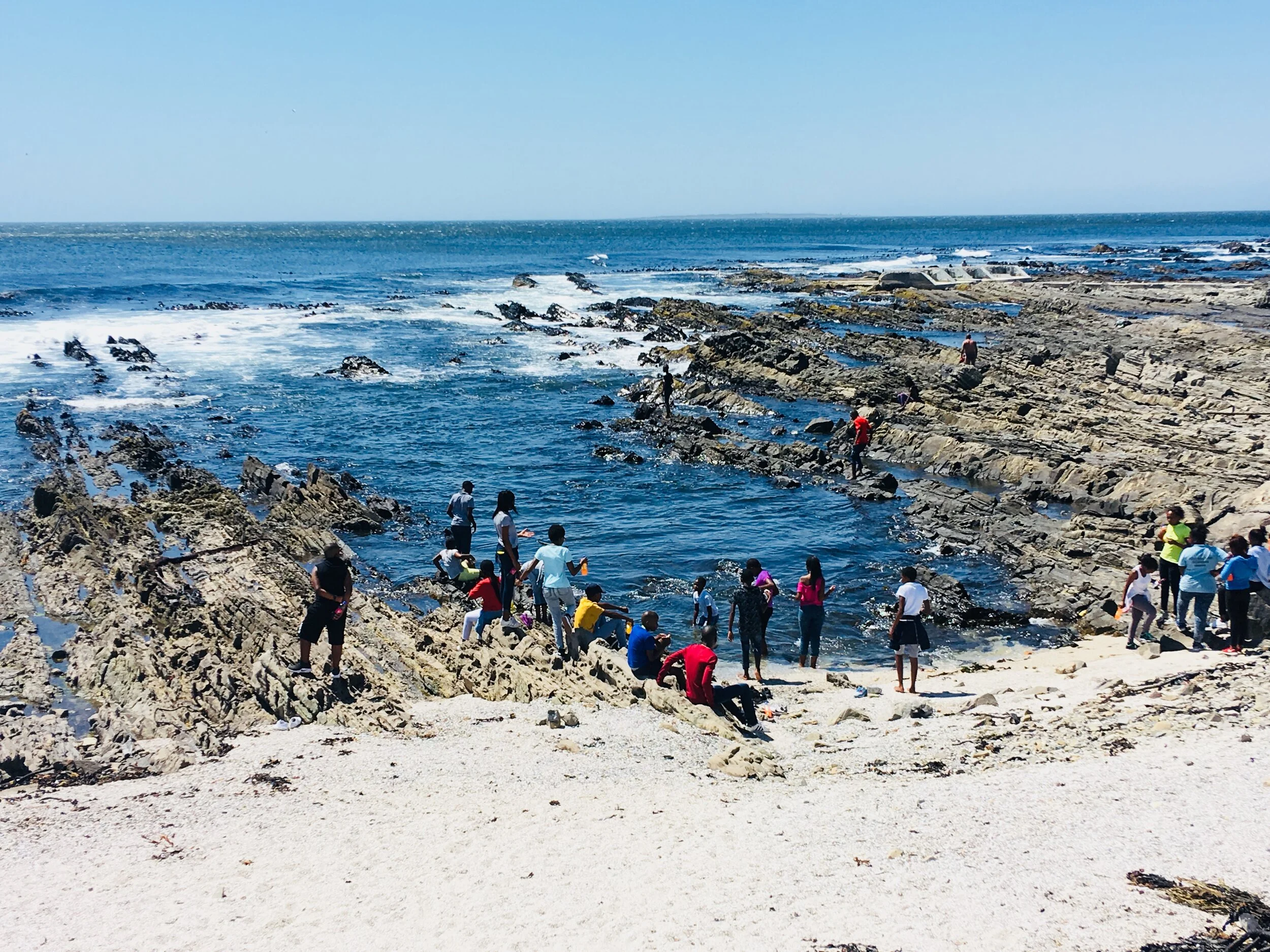Students at the beach at the Sea Point Promenade in Cape Town in January 2018. Photo by Amelia.
“Research is formalized curiosity. It is poking and prying with a purpose.”
Dissertation
“A Ticket to Life”: Schooling and the Politics of Aspiration in Cape Town, South Africa
Schooling is a social project of making futures. Across global contexts, youth and families navigate aspirations framed by perceptions of what is possible within starkly unequal conditions of possibility. In Cape Town, persistent colonial and apartheid geography continues to normalize racialized inequality. This inequality is made visible and reproduced in large part through schooling patterns and outcomes. Post-apartheid reforms and global trends have accelerated processes of education marketization, including a growing sector of “affordable” private schools that claim to level uneven terrain and interrupt poverty by fostering upwardly mobile youth from township communities. Critics argue they fuel crisis, causing further differentiation in an inequitable system. Proponents point to failing state schools and assert families’ right to quality education. My research foregrounds perspectives and experiences of those confronted with this double bind between “choice” and crisis.
Based on 21 months of ethnographic research, A Ticket to Life explores how students, alumni, families, and teachers of a low-fee independent high school navigate the racial and spatial politics of aspiration in an anti-Black city as well as how the school is embedded in the broader transnational politics of market-based education reform. Engaging anthropology, Black studies, and comparative and critical education, I argue that racial capitalism shapes the global circulation and local articulation of marketized education reforms, that aspiration is a multivalent imaginary with underexplored spatial dimensions in the context of racialized geographies, and that deep investments in liberalism and its attendant capitalist logics compromise sincere commitments to critical pedagogy and its liberatory potential. Nevertheless, youth and educators (in school and beyond) harness education as both a site and a strategy of struggle in seeking the inextricable goals of spatial and racial justice.
